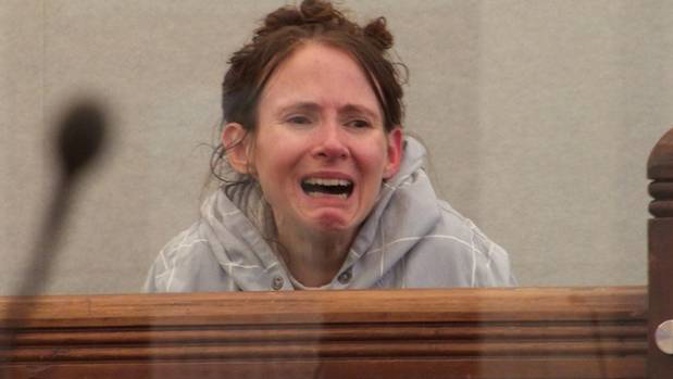
The Media Council has partly upheld a complaint about this article, stating that the photograph of the defendant in court should not have been published. The full decision can be read here.
A woman with obsessive-compulsive disorder jailed for abusing her terrified mother needs help - not a prison cell, a leading psychotherapist says.
Anita Dorothy Cumming, 39, would scream at her mother and force her out of bed to clean the house in the early hours, the Dunedin District Court heard yesterday.
The cleaning had been done to "exacting specifications", due to Cumming's obsessive-compulsive disorder (OCD).
A psychologist's report said she had developed an "insecure attachment pattern" and had come to rely on her mother to alleviate her anxieties inherent with OCD.
"Those who adhere to her cleaning routines and then refuse to follow instructions are at threat of violence," it said.
Judge Michael Turner said even if there was a home-detention address available for Cumming, only imprisonment was appropriate.
"You have little if any insight into the offending and effects of it on others. To permit you to return home will only lead to further offending and harm to your mother," he said.
Yesterday, she was jailed for a year for her crimes.
She had previously pleaded guilty to three breaches of a protection order - a measure that had been put in place to shield her mother from such attacks.
Psychotherapist and Herald columnist Kyle MacDonald said the woman's condition was unusual, as it was rare for OCD to involve violence in the way that had been described in the report.
The OCD and the abuse have to be considered quite separately, he said.
"For the overwhelming majority of people who struggle with OCD it's about managing internal anxiety and discomfort through compulsively controlling their environment."
OCD had two parts, the obsession on things that people become stuck on to manage distress and the loop of repetition which is the compulsion, he said.
"It's unhelpful because it comes to dominate and it's unhelpful because it is quite rigid."
People find it very difficult to stop because then they feel anxiety and tension more intensely, he said.
"I think in this case it is really clear this is a person who needs help, this is not a person who needs imprisoning," he said.
"Being in prison is unlikely to enable her to access the help she needs."
Having said that MacDonald added, "the mum clearly needs protection as well", but that was also potentially addressed by Cumming undertaking treatment.
However, her willingness to do so was unclear, he said.
"If you look at it from the point of view of violence, then you can make an argument that imprisoning someone is correct but clearly this is also someone whose violence is being driven by being very unwell.
"Her behavior is described as really concerning and it's unlikely that being in prison is going to be helpful."
The number of mental health events reported to police last year was 31,689, up by 22 per cent from 2015.
What is OCD?
• Obsessions are repetitive and unwanted thoughts, images or impulses that cause anxiety and are hard to stop.
• Compulsions are repeated actions or behaviours that a person feels driven to do, even though they know they are unnecessary or don't make sense.
• Typically OCD starts gradually and can be a minor irritation for years, eventually getting to the point where symptoms can no longer be denied.
• OCD usually starts during childhood or in teenage years. Most people are diagnosed by about age 19. Symptoms of OCD may come and go and be better or worse at different times.
• The exact cause of OCD is unknown but there is strong evidence it has a physical cause in the brain, where the parts of the brain responsible for starting and stopping thoughts and actions and responding to new information do not work properly.
Source: Mental Health Foundation
WHERE TO GET HELP:
If you are worried about your or someone else's mental health, the best place to get help is your GP or local mental health provider. However, if you or someone else is in danger or endangering others, call police immediately on 111.
OR IF YOU NEED TO TALK TO SOMEONE ELSE:
• DEPRESSION HELPLINE: 0800 111 757
• KIDSLINE: 0800 543 754 (available 24/7)
• LIFELINE: 0800 543 354 or 09 5222 999 within Auckland (24/7)
• NEED TO TALK? Free call or text 1737 (24/7)
• SAMARITANS – 0800 726 666
• SUICIDE CRISIS HELPLINE: 0508 828 865 (24/7)
• WHATSUP: 0800 942 8787 (1pm to 11pm)
• YOUTHLINE: 0800 376 633, free text 234 or email [email protected]
There are lots of places to get support. For others, click here.
- Additional reporting: Otago Daily Times
Take your Radio, Podcasts and Music with you









